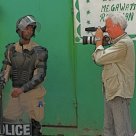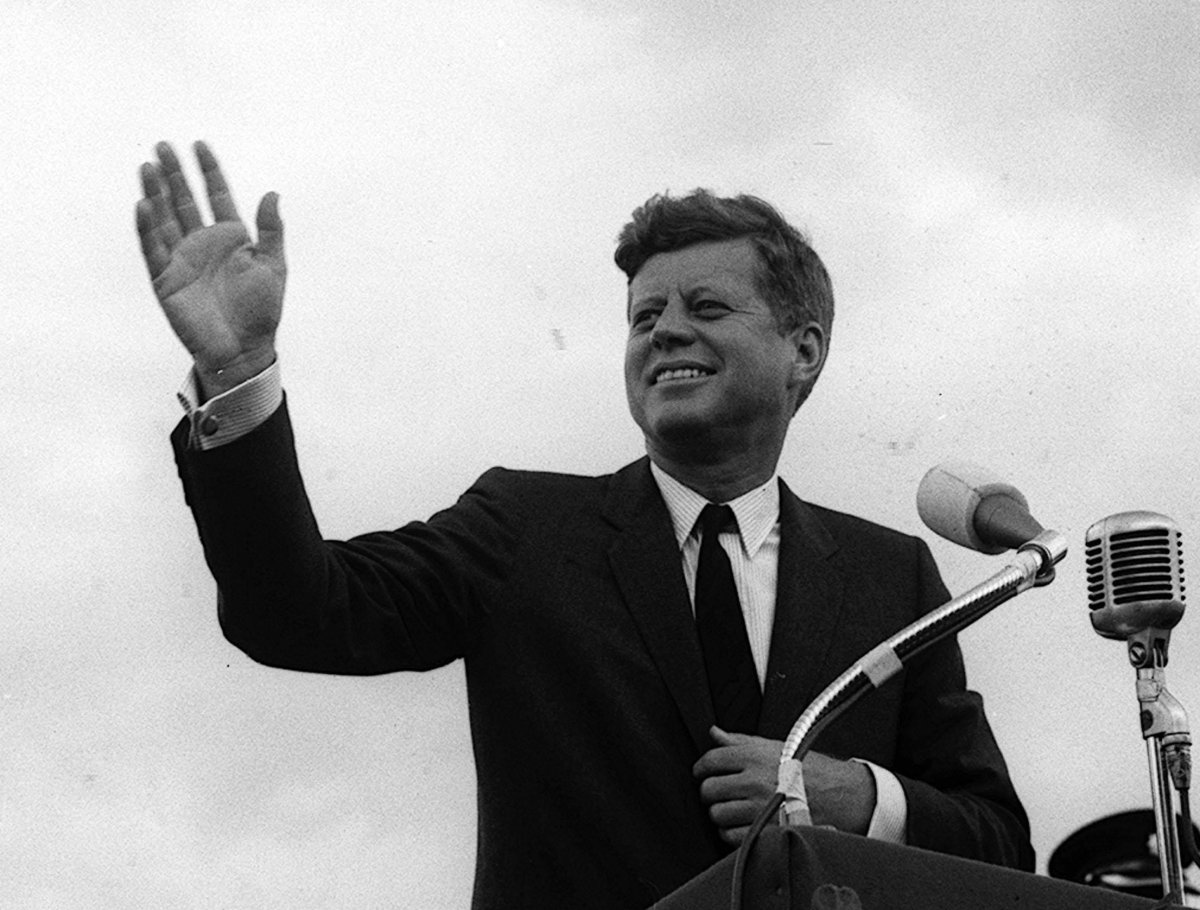It was 50 years ago that one of the most beloved presidents was killed. 16X9 looks back at the assassination of JFK – through the eyes of three Canadians.

GILLIAN COSGROVE: A CAREER IS BORN
When 11-year-old Gillian Cosgrove and her Grade 6 class were called into a special assembly at her Montreal school on November 22, 1963, she was frankly terrified. The only other time such an assembly had been called was a year earlier, during the Cuban Missile Crisis, when the students were alerted to the possibility of a nuclear attack. “We thought, oh, no, it might be the end of the world again,” she remembers.
It wasn’t the end of the world, but it was a terrible tragedy nonetheless: the assassination of President John F Kennedy. For Gillian, it was “like a body blow. I went oomph.”Kennedy and his presidency were a popular subject of conversation around the Cosgrove dinner table. Gillian’s mom even adopted a Jackie Kennedy hairdo.
Read more: 5 decades later, some JFK assassination files still sealed; researchers demand ‘transparency’
After hearing about President Kennedy’s death in the gym that day, Gillian broke down in tears, went home and immediately sat down at her baby grand piano. “I had to purge my emotions,” she says. “I needed a catharsis of some kind.” So she played Beethoven’s Moonlight Sonata several times—a piece she’d been practicing as a music student. Emotionally settled, she then sat down at her Olivetti portable typewriter, and wrote her first piece of real journalism: An editorial for the student newspaper, The Bugle, with the headline “Why Do We Mourn?”
“President Kennedy’s ideals will always live on as a memorial to his greatness,” she wrote. A dozen years later, at age 23, Gillian became the youngest-ever winner of the Governor General’s Award for Meritorious Public Service in Journalism, for a story revealing the shocking ill-treatment of children at a detention centre in Montreal. That Kennedy editorial taught her a valuable lesson about the power of the pen. “If you drop a pebble in a pond, maybe the ripple will have an effect somewhere down the road.”
ROBERT MACNEIL: A BRUSH WITH HISTORY
Canadian-born Robert MacNeil was an NBC White House correspondent in November 1963, when he was assigned to cover JFK’s visit to Dallas, Texas. It was a routine assignment. Kennedy would make a few speeches, shake a lot of hands, introduce his glamorous wife Jackie to the crowds, and try to raise his administration’s profile in a state that, until then, had not been receptive to the Kennedy charisma.
MacNeil was in the press bus, seven cars behind Kennedy’s open limousine as the motorcade snaked through downtown Dallas on its way to Dealey Plaza. At approximately 1pm, he heard the first gunshot, then two more in quick succession. He shouted to the driver to stop the bus, and he jumped out. He vividly remembers the sounds he heard on the Dallas streets: high-pitched screaming “and what sounded like many criers out of tune and harsh. Just an amazing sound.”

Get daily National news
On the now-famous ‘grassy knoll’, he saw people covering the bodies of their children to protect them from possible further gunfire. One man was pounding his fist into the grass in despair. Others were running alongside policemen. MacNeil thought they might be chasing a gunman.
Above: Canadian Robert MacNeil tells 16×9 about the day Kennedy was shot.
“So I thought I need to find a phone. I ran around . . . and the first place I came to that looked as though it might have a phone turned out to be the Texas Book Depository. I ran up the steps and as soon as I did a young man in shirt sleeves came out. I said ‘where’s the phone?!’ He said you’d better ask inside. I saw another man in the lobby of the building who was on a phone and he pointed to an office, I found an office, there was one of those old phones with four Lucite buttons, I got through to NBC in about ten seconds.”
It was only a year later, thanks to the research of author William Manchester, that MacNeil discovered the likely identity of the “young man in shirt sleeves” whom he had met racing into the Book Depository that afternoon. It was almost certainly Lee Harvey Oswald fleeing the scene of the crime, after assassinating President Kennedy.
A chilling coincidence and, perhaps, a close call. Minutes later, Oswald was stopped for questioning by a Dallas policeman named JD Tippitt. In response, Oswald drew his handgun, and fatally shot the officer.
PETER TRUEMAN: A LOSS OF INNOCENCE
On November 22, 1963, Peter Trueman was sitting with his colleagues in a pub near Washington’s National Press Building, when a nearby public telephone started to ring. Trueman, a correspondent for the Montreal Star, recalls that they were just about to pour the second pitcher of draft beer.
“It was my office mate Jack Brooks who was the correspondent for the Vancouver Sun, telling me that the president had been shot. Not that he was dead, but that he had sustained a wound. And that we had better get the hell back into the office, which we did. We ran down 14th Street, a record-breaking performance to get to the office, to find in that short time Kennedy had been declared dead.”
Trueman went into bulletin mode: Tearing off news agency wire copy, listening to the radio, watching the TV bulletins. “You find out what you can. And you start writing,” he says. But he admits that, in his zeal to deliver a compelling story to his editors, he made a cardinal error.
“I leapt to conclusions. . . . I suggested somehow in the lead paragraphs that (Kennedy’s) attacker might conceivably have been a member of the right-wing Dallas society. And fortunately my editor in Montreal screamed when he saw this and tore it off the galley and threw out the paragraphs and put something else in that was less offensive. So I felt badly about that during the whole period. I was off on the wrong foot . . . And I was a hell of a lot more careful about what I wrote from then on. . . . At least it never got into print.”
It was a powerful lesson in the seasoning of a journalist. And in the years that followed, Trueman also learned something about how important, singular events can change history. “We lost our innocence, the United States lost its innocence, and things started to go wrong.” The assassinations of Robert Kennedy and Martin Luther King, race riots, Vietnam, Watergate, Nixon’s resignation—all seemed to flow, directly or indirectly, from that day in Dallas.
That lost innocence was transformative for Trueman as well. “I was more cynical after that . . . I’ve never been able to look at any politician with much joy ever since.”
Don’t miss “JFK: 50 Years Later” this Saturday at 7pm on 16X9.




















Comments